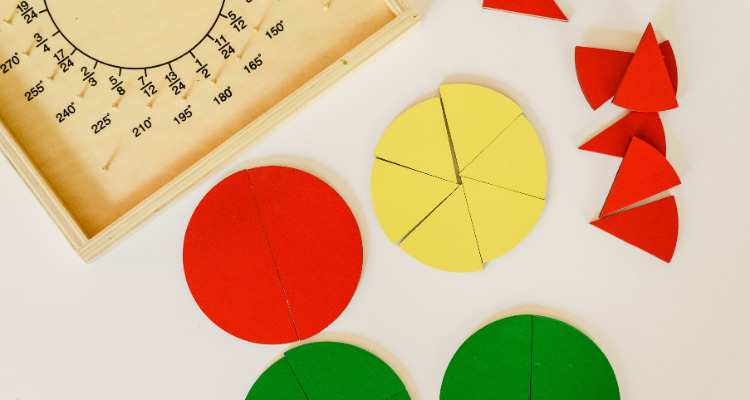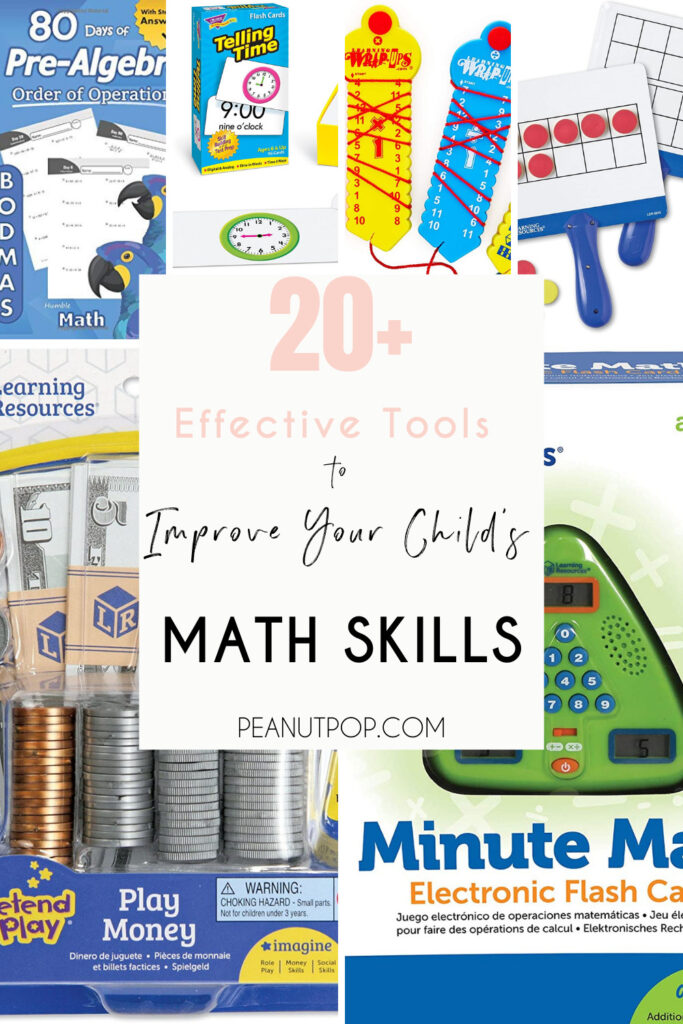I am usually within earshot of my first grader’s virtual learning classes. It has been interesting to observe, in real-time, how she engages with teachers and peers. This experience has given me a bird’s eye view into how she learns, what ignites frustration, and how she thrives. We use math tools at home to support classroom learning.
Learning experiences at home or school are not meant to be perfect. Your budding mathematician will likely get stuck on a concept or two. Whether your child needs support in reading, math, or both, understanding their learning style is very helpful. Do they thrive through kinesthetic (doing), auditory (hearing), or visual (seeing) learning? While teachers incorporate all learning styles, sticking to one style in the classroom is not realistic. One benefit of using math tools and resources at home is being able to choose a style that helps your child thrive and run with it.
Create a space at home where children can be vulnerable, improve while making mistakes, and transition what they learn back to the classroom. We all know tutors are a great resource. However, tailoring math support for young children at home is an ideal first step.
At Home Math Tools and Resources
Addition, Subtraction, Multiplication, Division, and Fractions
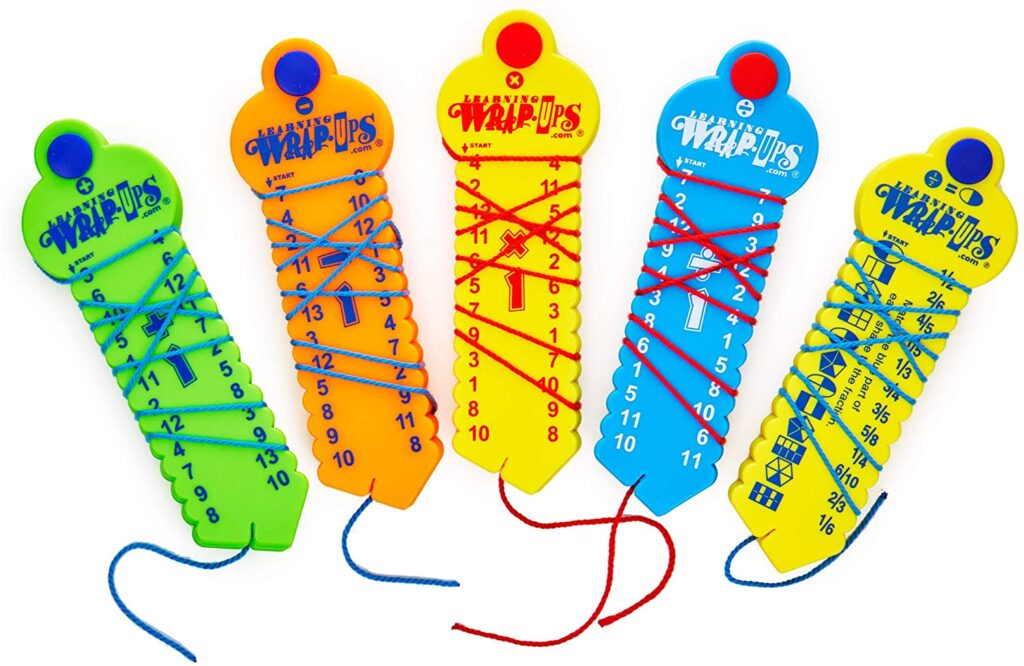
Math facts are the foundation of most math concepts. Knowing these basics set children up for strong connections and confident experiences in math – especially algebra.
We have used wrap-ups for years to solidify math facts. They are my all-time favorite tool. Use them during long car rides, while waiting for an appointment, or simply during designated time at home.
I highly recommend the full set of self-correcting wrap-ups. Younger children will eventually need them all.
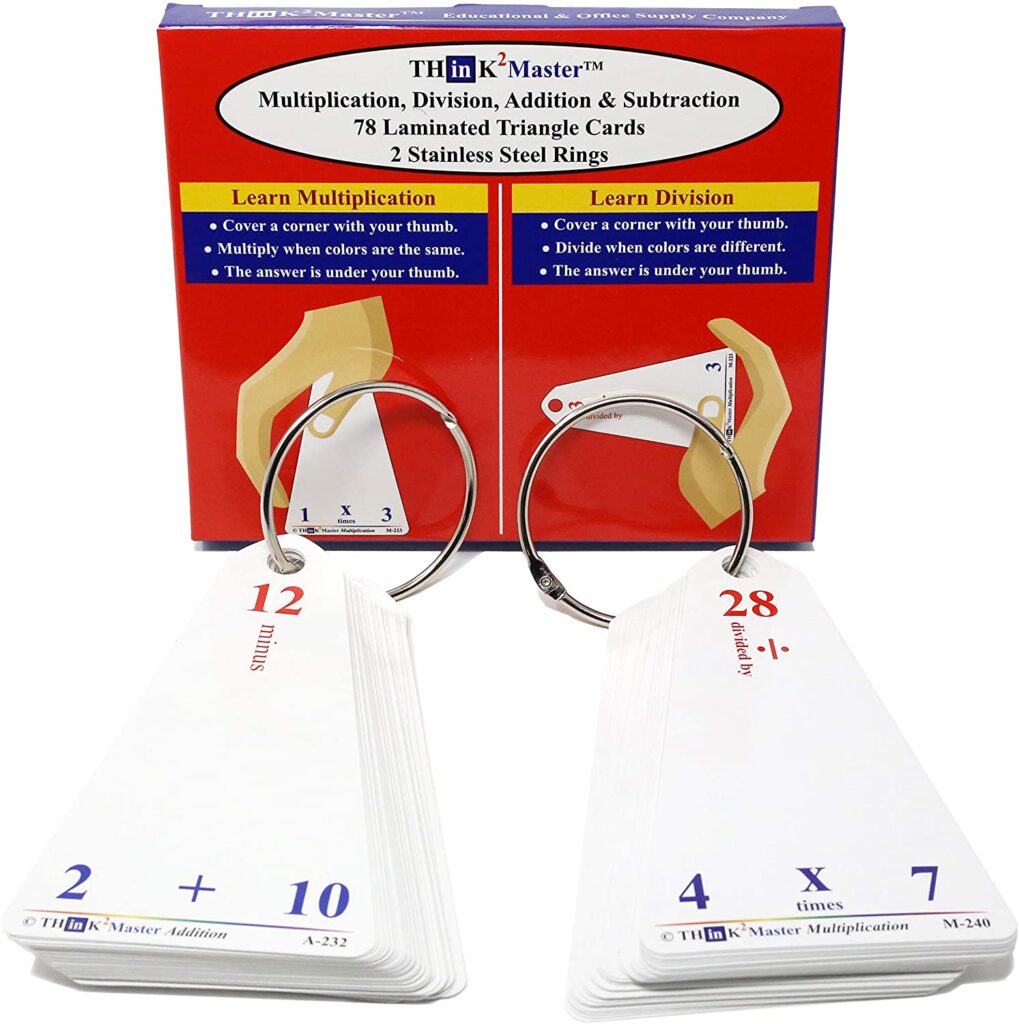
Think2Master Triangle Flash Cards
These are not your average flash cards. Triangle flash cards visually mimic number bonds and fact families. They also help foster independence.
This set includes addition, subtraction, multiplication, and division.
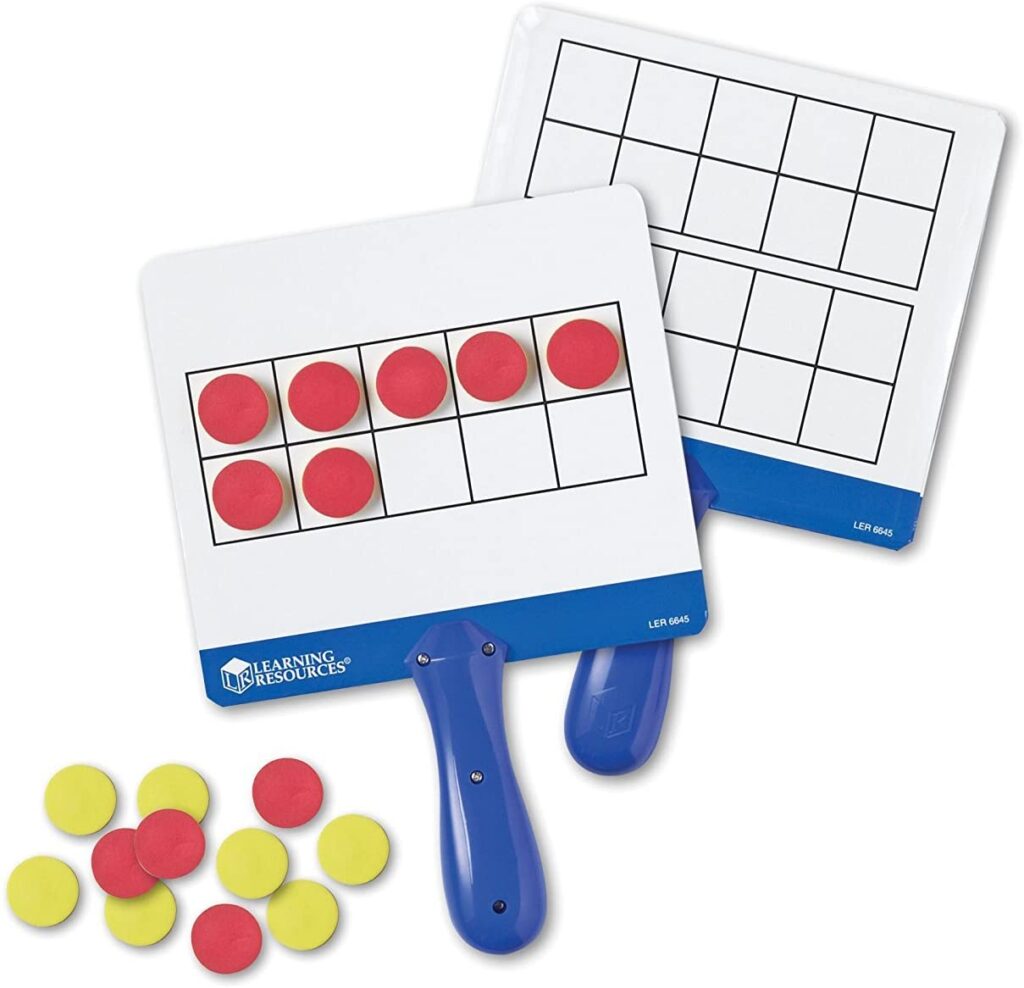
Learning Resources Magnetic Ten-Frame Answer Boards
These are perfect for visual or kinesthetic learners. A great resource to visually map out number sentences. They are double-sided and can be used with a dry erase marker.
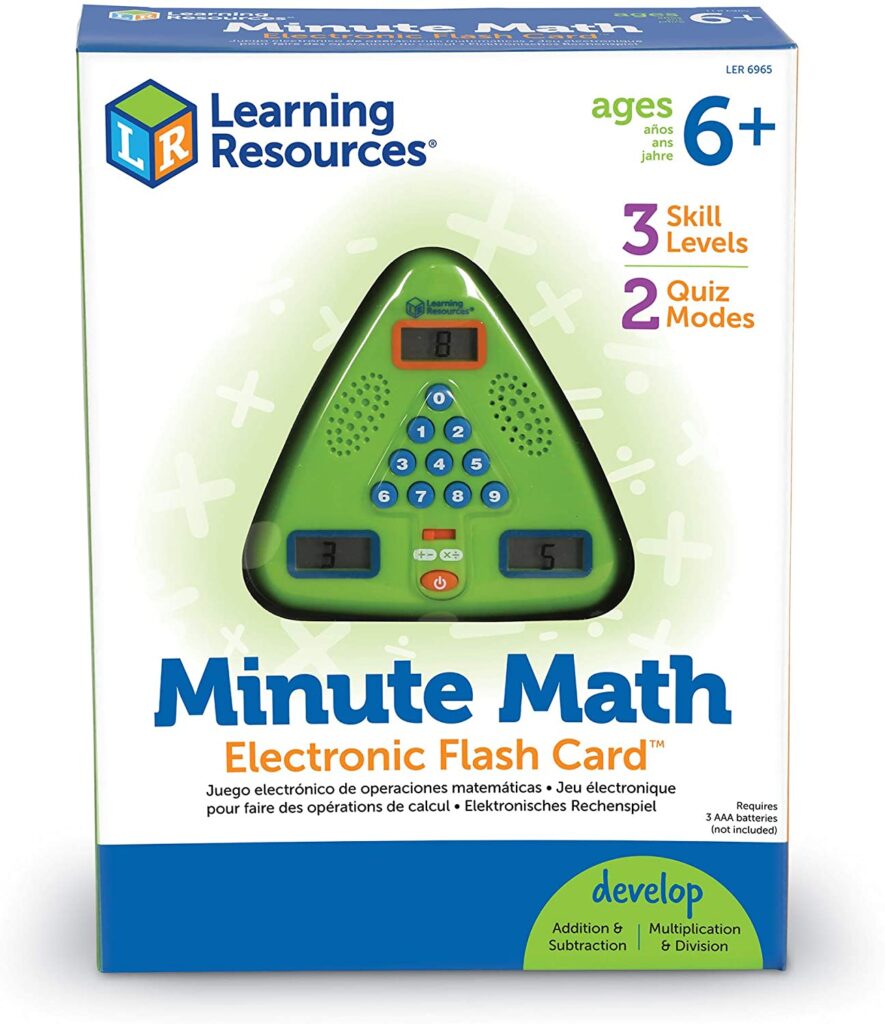
Learning Resources Minute Math Electronic Flash Card
An auditory learner will be at ease with this handheld device. While it has an untimed mode, the 60-second timed mode helps build speed and accuracy with addition, subtraction, multiplication, and division facts.
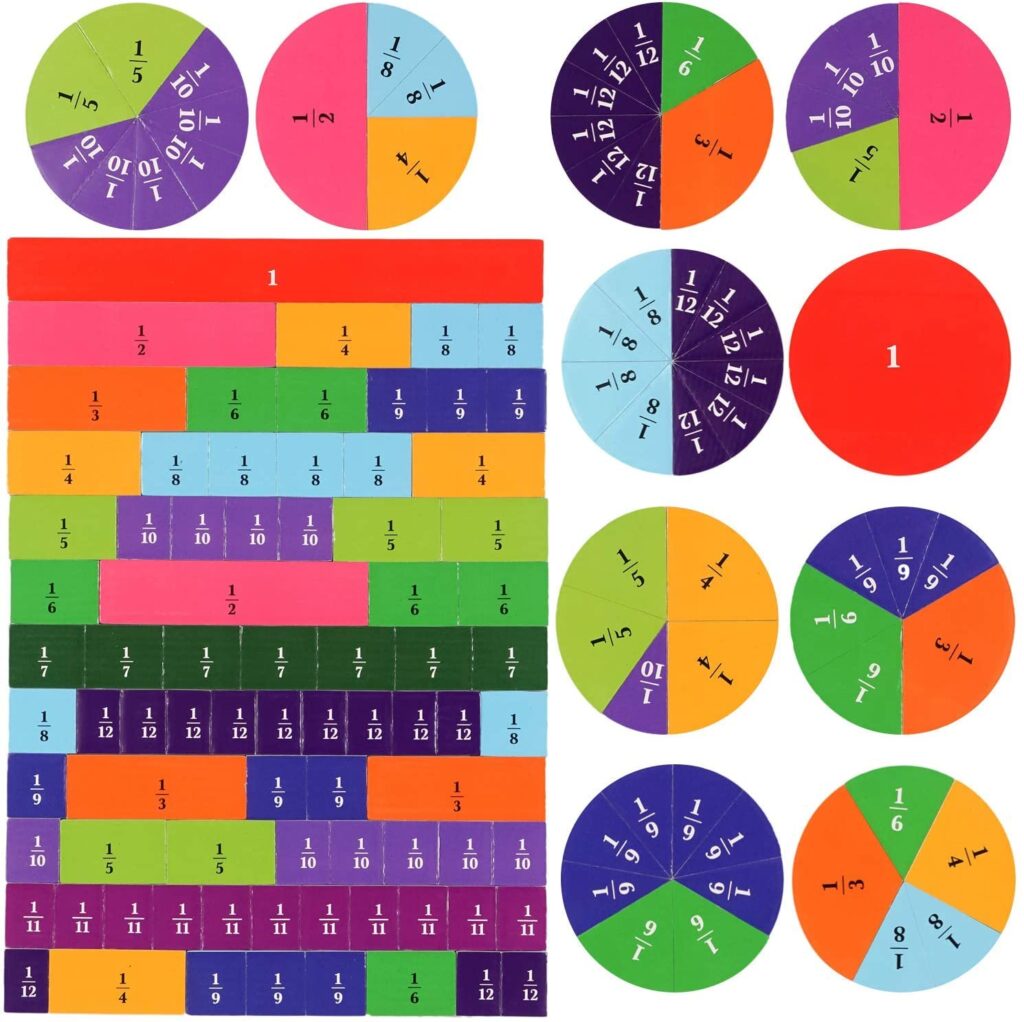
Simply Magic Magnetic Fraction Tiles
Fractions can be tricky. Distinguishing the value of a denominator and numerator often causes a little confusion. These fraction tiles are a great visual way for all learners to make connections and help master the concept.
Place Value, Telling Time, and Money
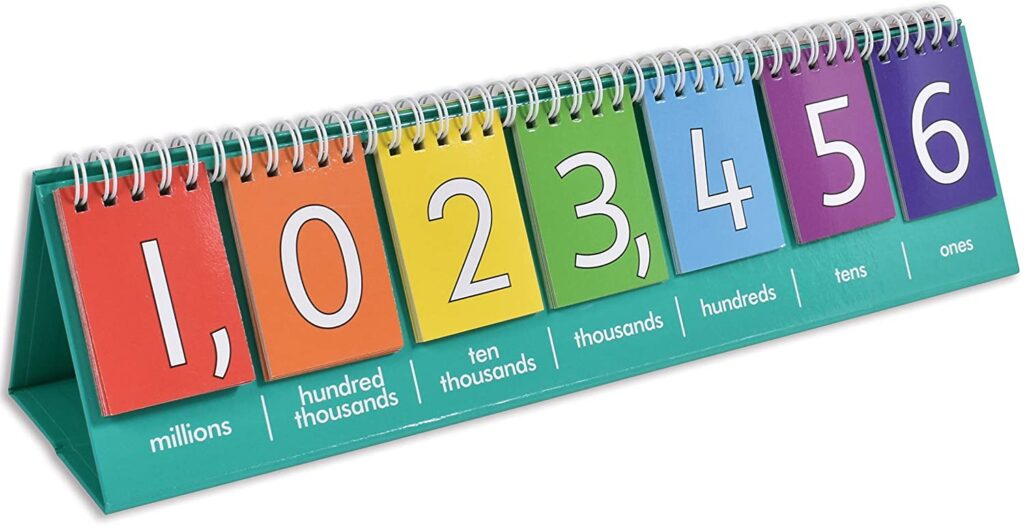
This double-sided flip chart clearly defines the place value for numbers up to the millions place. The opposite side has decimal place value to the thousandths.
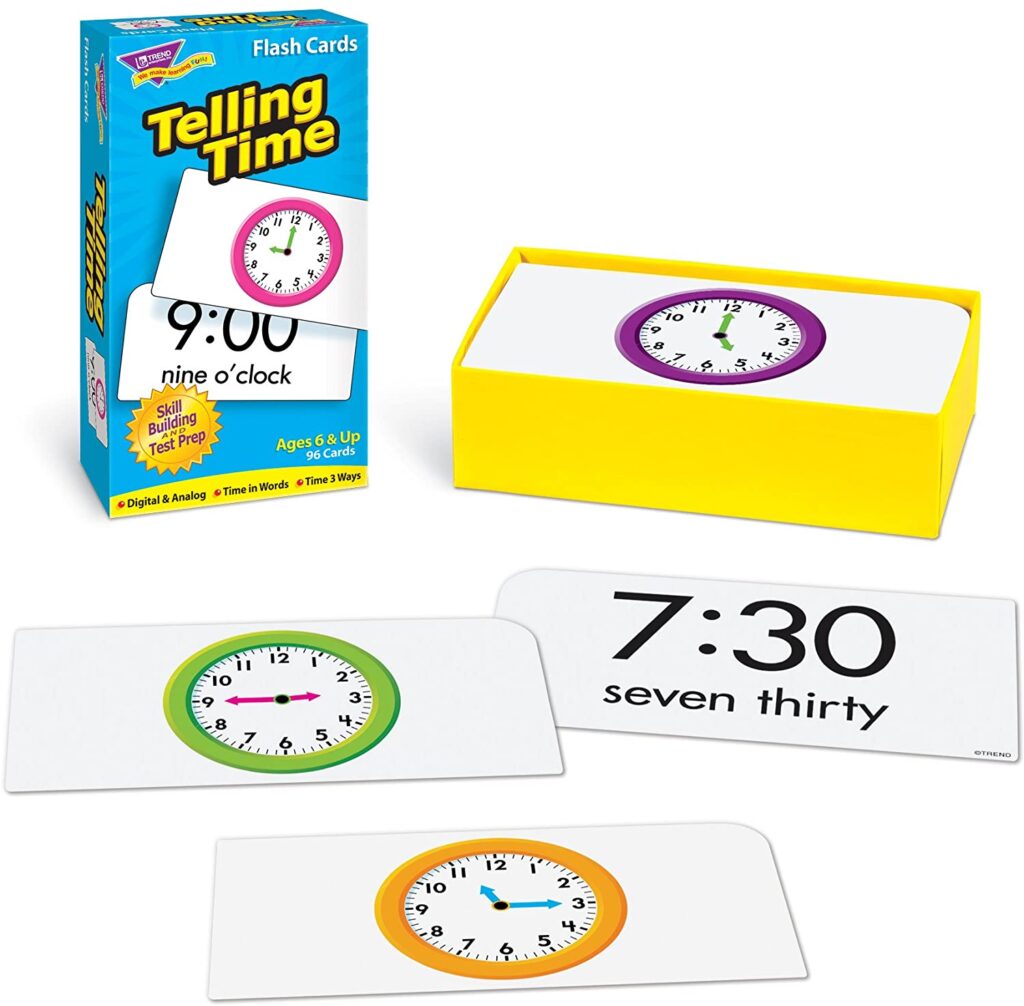
From telling time to the hour to the more complex concept of elapsed time, learning to tell time can be frustrating. Listed are a few tools to support different stages of learning. The demonstration clock and dice go well together. Use them to play a telling time game by rolling the dice and then showing the time on the clock.
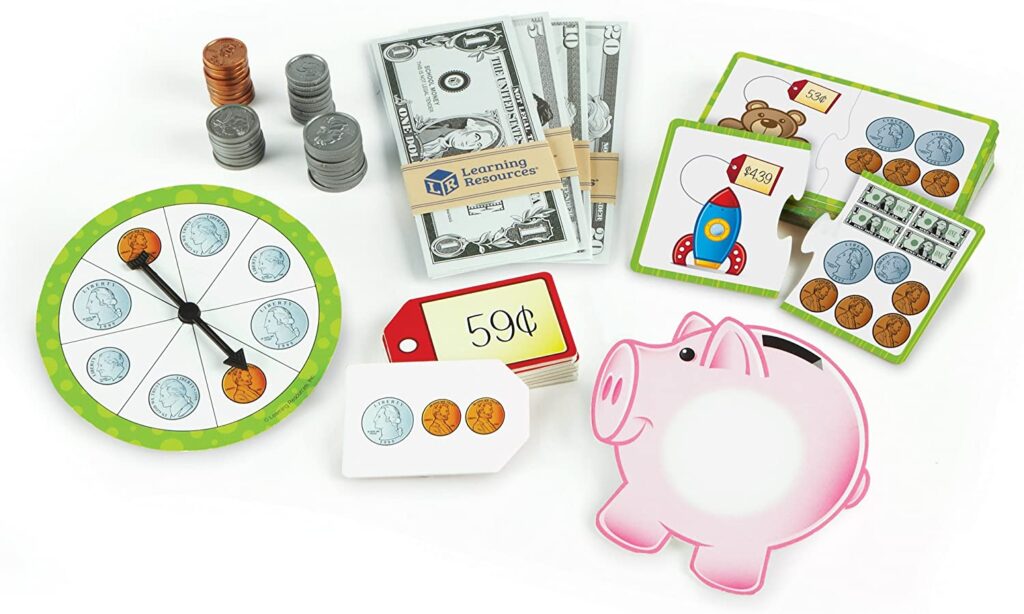
Learning Resources Money Activity Set
Initially, the skill of counting money can be difficult. Connecting real-life situations with the value of coins and dollar bills is essential.
At Home Math Assessment Tools and Resources
After using a mix of math tools, you may want to informally assess how things are going. Here are a few resources to help with that.

100 Days of Timed Tests & Math Drills
- Addition and Subtraction: K-2, 1-3
- Multiplication
- Division
- Money, Fractions, & Telling Time
- Multi-Digit Multiplication
- Long Division
- Decimals, Percents, & Fractions
- Pre-Algebra
You may also like, Need a Break From Screen Time?
Pin It!

